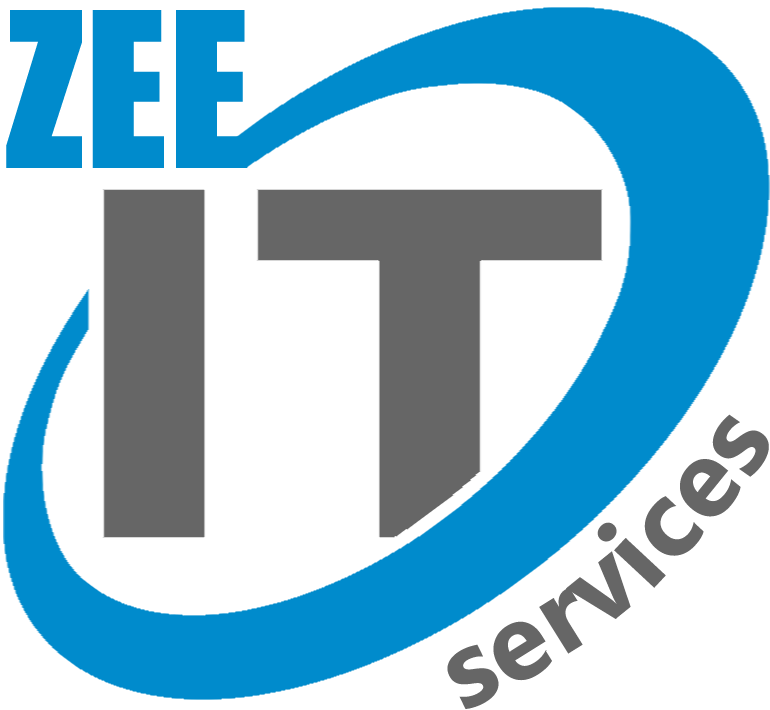Do you have the following thoughts or objectives in mind: You want to attract new donors to your website and you want to increase the visibility of your brand but you’re having trouble discovering your target market. You can achieve all those goals by using non-profit seo tactics. A well-SEO-optimized website gets more donors and supporters. According to research, more than 90% of searchers don’t scroll beyond the first page. Your content will probably not be found or noticed if your website is not featured on the first few pages. By strategically utilizing SEO techniques, nonprofits can increase their visibility on search engines, connect with their target audience, and ultimately achieve their mission. In this comprehensive guide, we’ll explore a variety of strategies to help nonprofits enhance their SEO efforts and make a meaningful impact on their community.
Introduction:
Before diving into the strategies, let’s discuss why SEO matters for nonprofits. When potential donors search online for causes to support, nonprofits that appear on the first page of search results have a significant advantage. By ranking higher in search engine results pages (SERPs), nonprofits can increase their visibility and attract more organic traffic, ultimately leading to higher donations and engagement. Are you able to move your nonprofit website up the Google ladder? So let’s begin!
What Is SEO for Nonprofits?
SEO, or Search Engine Optimization, for nonprofits, involves a set of strategies and techniques aimed at improving the visibility and online presence of nonprofit organizations. It’s all about optimizing their websites and online content to rank higher in search engine results, making it easier for people to find them when they search for related topics or causes. Nonprofits, just like businesses, want to reach their target audience effectively. SEO helps them achieve this by making their websites more search engine-friendly.
How Does SEO for Nonprofits Work?
To improve a website’s exposure on search engines like Google, SEO fundamentally entails a number of techniques and approaches. Nonprofits can ensure that their online presence is well-optimized by using relevant keywords, producing high-quality content, optimizing website structure, and constructing backlinks. Consequently, while looking for relevant data, their target audience will find them more easily.
Why Is SEO Important for Nonprofit Organizations?
Increase Awareness
Nonprofits often work on causes that require widespread awareness. SEO helps in increasing the visibility of nonprofit websites, ensuring that people looking for information related to their cause stumble upon their site. This increased exposure can lead to higher engagement, more support, and greater impact.
Strengthen Your Network
An optimized website attracts not only potential donors but also like-minded organizations and individuals. By having a strong online presence, nonprofits can establish themselves as credible and authoritative players in their field, leading to potential partnerships and collaborations.
Reach Local Audience
Many nonprofits operate on a local level, addressing community-specific issues. SEO can help them target their local audience more effectively, ensuring that their message reaches those who are most likely to resonate with their cause.
Low-Cost Marketing
Marketing efforts can strain the budgets of nonprofits. SEO provides a cost-effective way to reach a broader audience compared to traditional marketing methods. It’s a long-term investment that continues to deliver results over time.
Do Nonprofits Need SEO?
Absolutely. In today’s digital world, where individuals turn to search engines for answers, nonprofits need to be present where their audience is searching. For instance, when someone searches for a “nonprofit organization near me,” they are eager to work with businesses like yours that are situated in their community. SEO helps nonprofits establish credibility, improve visibility, and connect with supporters on a larger scale.
Strategies to Drive Donations and Engagement
Conducting Keyword Research with LSI Keywords
Comprehensive Keyword research is the cornerstone of successful SEO. In addition to the main keyword “SEO for Nonprofits: Strategies to Drive Donations and Engagement,” using Latent Semantic Indexing (LSI) keywords can enhance your content’s relevance. LSI keywords are semantically related terms that provide context to search engines, helping them understand the topic of your content. Tools like Google Keyword Planner and SEMrush can assist in identifying LSI keywords that resonate with your target audience. What do the terms “job opportunities near me,” “easy pizza recipes,” and similar terms have in common? Using relevant keywords to your content signal Google that your pages are relevant to the user’s query. It is advised to be careful when using the keywords.
Creating High-Quality, Relevant Content
Content remains king in the digital realm. Nonprofits should focus on creating high-quality, informative, and emotionally resonant content that aligns with their mission. Nonprofits should produce content that answers donors’ questions, educates them about the cause, and establishes trust. By addressing the needs and concerns of your audience, you can establish authority and trust within your niche. Incorporate the main keyword naturally into your content and make sure you must use the keywords Within headings on the page, Within the meta description, Within the page title, and Within the URL but avoid keyword stuffing, which can harm your SEO efforts. The keyword density should be between 2% and 5% as a general rule. Therefore, be sure to utilize the proper keywords in the proper context.
Optimizing On-Page Elements
To increase your website’s visibility in search results, you must optimize a number of its pages. Title tags, meta descriptions, headings, and image alt text can all be optimized. Meta tags and descriptions provide a snapshot of what a webpage contains. By crafting compelling meta tags, nonprofits can entice users to click on their links in search results. Headers, images, and internal links contribute to the overall user experience and SEO performance. Nonprofits should use descriptive headers, optimize images for faster loading speed, and strategically place internal links to guide users through their websites. Ensure that your main keyword appears in these elements while maintaining a natural and reader-friendly tone. A well-optimized website not only attracts more visitors but also keeps them engaged and encourages donations.
Building High-Quality Backlinks
An important component of SEO is backlinks or incoming links from other websites to yours. When reputable websites link to your nonprofit’s content, search engines perceive your site as credible and authoritative. Seek opportunities for guest blogging, collaborations, and partnerships with other organizations in your niche. It’s essential to focus on acquiring links from reputable and relevant websites within the nonprofit sector and focus on quality over quantity as a few high-quality backlinks can have a more significant impact than numerous low-quality ones.
Leveraging Local SEO
Local SEO is invaluable for nonprofits aiming to engage with their local community. By optimizing their online presence for local searches, nonprofits can connect with supporters who are more likely to attend events, volunteer, or donate. Optimize your Google My Business listing with accurate information, such as your address, phone number, and hours of operation. Positive reviews from the local community can boost a nonprofit’s credibility and encourage others to get involved. Encourage donors to leave positive reviews, as these reviews can boost your credibility and visibility in local searches.
Utilizing Social Media Engagement
Social media platforms are powerful tools for nonprofits to connect with supporters and amplify their message. Share compelling content, success stories, and updates regularly. Nonprofits should choose platforms relevant to their audience and consistently engage with followers. Encourage engagement through likes, shares, and comments. While social media signals may not directly impact your search rankings, increased engagement can drive more traffic to your website and potentially lead to more donations.
Mobile-Friendly and User-Focused Design
Nonprofits now must have mobile-responsive websites as a result of Google’s introduction of the mobile-first indexing algorithm in 2018. According to data, 46% of American people report using their smartphones for 5 to 6 hours each day, while 85% of American adults own a smartphone. Make sure your website offers a smooth experience across all devices, is responsive, and loads quickly. User-focused design enhances the overall user experience, encouraging visitors to explore your site and engage with your content.
Content Marketing for Nonprofits
Content marketing involves creating and distributing valuable content that aligns with a nonprofit’s mission. By offering informative and engaging content, nonprofits can establish themselves as thought leaders in their field. Diversifying content types, such as blog posts, videos, and infographics, keeps the audience engaged and accommodates different learning preferences. Visual content can convey complex messages effectively and evoke emotions. Sharing success stories and testimonials showcases the positive impact a nonprofit has on individuals and communities. These stories evoke emotion and foster a sense of connection among supporters.
Voice Search Optimization
Voice search is on the rise, with devices like smart speakers and virtual assistants becoming commonplace. Nonprofits should optimize their content to answer voice-activated queries effectively. Voice search queries are often conversational and longer than text-based queries. Nonprofits should create content that addresses common questions in a natural, conversational tone. Optimizing for “near me” voice searches can drive local engagement. Nonprofits can tailor their content to appear in local search results when users are looking for nearby charitable opportunities.
International SEO Considerations
International SEO allows nonprofits to connect with supporters worldwide. However, expanding internationally requires understanding cultural differences, languages, and search behaviors. Hreflang tags indicate the language and geographic targeting of a webpage. Implementing these tags ensures that search engines display the correct version of a webpage to users from different countries. When targeting international audiences, nonprofits must be mindful of cultural sensitivities. Adapting content to resonate with diverse cultures fosters understanding and engagement. For instance, if you’re targeting audiences in Las Vegas, it’s crucial to have SEO Las Vegas strategies in place.
Measuring and Analyzing Results
Tracking the effectiveness of your SEO strategies is vital to ongoing improvement. Utilize tools like Google Analytics to monitor website traffic, user behavior, and conversion rates. Regularly review key performance indicators (KPIs) such as organic traffic, bounce rates, and conversion goals. This data provides insights into what’s working and what needs adjustments.
Why choose Zee IT Services?
Discover the power of professional seo company ZEE IT Services in propelling your nonprofit’s mission to new heights. Our dedicated team specializes in crafting tailored SEO strategies that transcend the digital realm, driving unparalleled engagement and fostering generous support. With a proven track record of amplifying nonprofit visibility, we harness the force of search algorithms to uplift your cause, ensuring maximum reach and impact. Let ZEE IT Services be your digital ally, revolutionizing your online presence and channeling the energy of SEO into a force for meaningful change.
Frequently Asked Questions
Why is SEO important for nonprofits?
SEO enhances online visibility, helping nonprofits connect with supporters and drive donations effectively.
Is content quality more important than keyword usage?
Both content quality and keyword usage are crucial. While using relevant keywords helps search engines understand your content, high-quality content engages readers and establishes your authority in the field.
Can nonprofits benefit from paid advertising alongside SEO?
A: Yes, a combination of organic SEO efforts and targeted paid advertising can amplify your nonprofit’s online presence. Paid ads can provide immediate visibility while your SEO efforts gain traction.
Are there SEO tools specifically designed for nonprofits?
While many SEO tools are versatile and can benefit nonprofits, some tools offer discounts or special features tailored to the needs of nonprofit organizations. Research and compare different options to find the best fit for your goals.
Is local SEO essential for global nonprofits?
Yes, local SEO is still important for global nonprofits as it allows them to connect with local communities and address region-specific concerns. Yes, local SEO is still important for global nonprofits as it allows them to connect with local communities and address region-specific concerns.

